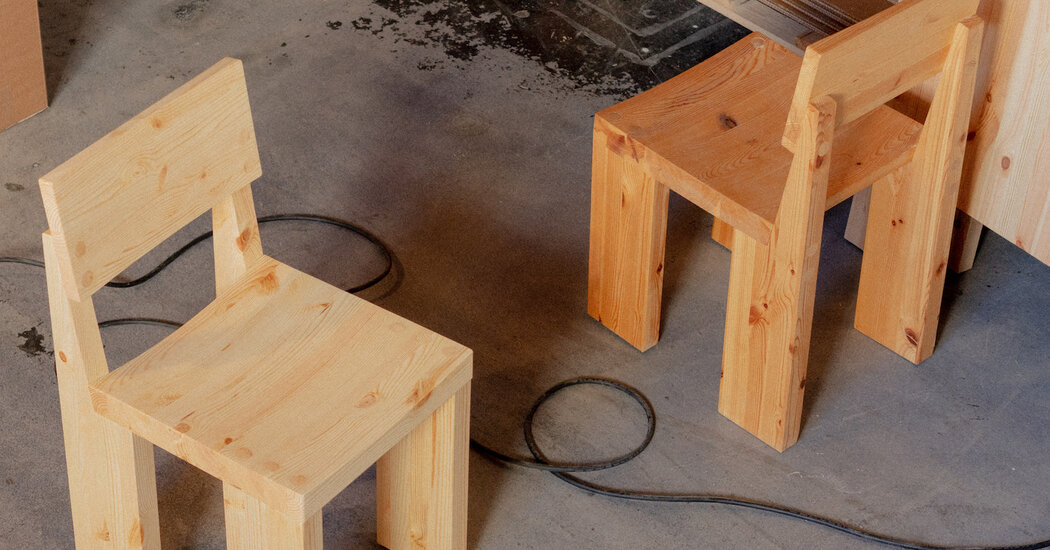
This article is part of our Design special section about innovative surfaces in architecture, interiors and products.
The stackable, three-legged Stool 60 is one of the Finnish brand Artek’s most recognizable pieces. But in September, the company released a twist on the classic Alvar Aalto design: stools with knotholes, insect trails and more visible wood grain — elements that are usually considered imperfections. Artek calls them “features.”
Considering that uniform pieces of light-blonde birch are one of the brand’s signatures, the “wild birch” editions, which in 2023 accounted for 2 percent of Stool 60 sales, seem like an unexpected shift. But according to Marianne Goebl, Artek’s managing director, it was a long time coming. “Because of climate change and industrialization, the forests are changing,” she said. Artek sources all of its wood from Finland, and since the trees it harvests are starting to look different, she believes the furniture made from them should look different, too.
Stool 60 Villi (Finnish for “wild”) is a collaboration between Artek and the Milanese design consultancy Formafantasma, which has made timber a particular research pet. Together, they explored how the company could become more responsive to environmental concerns.
“In design today — may that be fashion or furniture or car design — real transformative change can happen more on an infrastructural level than at the scale of a product,” said Andrea Trimarchi, Formafantasma’s co-founder. They noticed that more of a tree could be used in furniture production if the selection criteria shifted.
Embracing imperfection isn’t new in design, but it is newly relevant in discussions about ethical consumption in a changing world. There’s an acknowledgment that sustainable choices are going to look different, and what may have been considered defects in the past should instead be seen as virtues.






